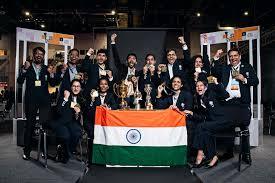

By A Special Correspondent
First publised on 2020-06-26 07:35:23
When Pakistan "arrested" two officers (they were later released the same day after questioning) attached to the Indian High Commission in Islamabad on the flimsy and improbable charge of possessing fake Pakistani currency and allegedly tortured them, it was clear that India would retaliate. But the scale of the Indian response has surprised observers. The Centre has asked the Pakistan High Commission in New Delhi to halve its staff. The reason given is that the huge staff meant most of them were engaged in spying activities. India and Pakistan have done such things in the past too but the current volatile situation and the worsening relations make it a major issue.
Pakistan has been trying to take revenge for India's lead in keeping it on the gray list of the FATF. It has been trying to get several Indians working in Afghanistan branded as international terrorists by trying to tie them up with terror activities in Baluchistan and Peshawar. Pakistan has been trying this seriously ever since India managed to convince the UNSC 1267 committee about the need to brand Jaish-e-Mohammed chief Masood Azhar as one. The latest such attempt was made on June 22 when Pakistan put the name of Venu Madhav Dongara, an engineer working with a construction firm in Afghanistan to be considered by the committee as an international terrorist. But the US blocked and terminated the attempt.
It is clear from all this that India's relations with Pakistan, already at an all-time low, are hitting a nadir. With J&K under a huge security blanket and the forces eliminating Pakistan-backed terrorists, including several leaders of some big outfits, with increasing regularity, the Pakistani Army and the ISI are losing patience. They watch in disbelief as thousand of sleeper cells get pushed into oblivion as their handlers are killed. They rue the time, effort and money spent in building the huge network which is being dismantled brick by brick by the Indian security forces. They are trying hard to foment trouble in Kashmir but are finding that even the public opinion is turning against them and new recruits are hard to come by.
India is capitalizing on the situation and would have started the political process in the state if the pandemic had not happened. Farooq and Omar Abdullah, along with several second-rung leaders, have already been released and Mehbooba Mufti might be released any time soon. Although there are still severe restrictions in the Valley and the Supreme Court is yet to pronounce its judgment of the legal validity of abrogating Article 370, it is becoming increasingly clear that India has been successful in bringing the state completely under the Indian union, with much of its special powers gone. Pakistan finds it hard to digest this and is itching for a fight. But worsening relations with India will only expose its plans. It will not be easy for it to carry out the proxy war now. India is watching its every move and its network of sleeper cells is all but gone. It will take years before another such diabolic apparatus is put in place and before that, Kashmir will be well and truly integrated into India.











